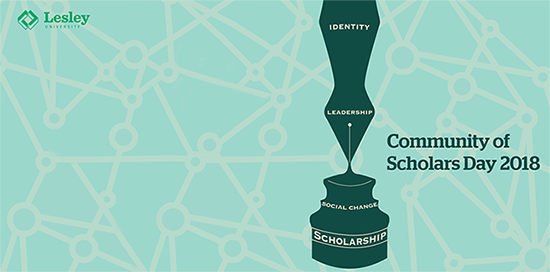Proposal Title
On the Path of Social Justice: Advancing self-awareness as social justice competency
Abstract
The first component area of Diane Goodman’s “Cultural Competence for Social Justice” framework is “self-awareness.” Training in self-awareness as a social justice competency necessarily includes the acknowledgement of implicit and unconscious forms of bias, and internalized dominance and oppression.
In Lesley University's Expressive Therapies Division, our learning contract has long included a statement regarding our commitment to helping our students become “aware of themselves and their impact on others.” We have deepened this historically held “self-as-instrument” view in recent years, recognizing that beyond the conscious awareness of one’s personal history or attitudes, unconscious bias has a significant “impact on others,” particularly those in marginalized communities.
What specific tools and approaches can we offer to support our students and community members in developing this self-awareness as a social justice competency?
One such tool may be mindfulness practice. Mindfulness practice has been shown to reduce the impact of implicit bias; to support self-regulatory processes that allow for the modulation of behavior; and to increase empathy in the face of difference. Mindfulness practices may also be helpful where awareness of unconscious bias challenges a strong identification with a preferred role (e.g. “the helpful therapist”). This non-judgmental approach may help us to recognize the depth to which systemic racism has prevailed in our world, including within our own minds.
Participants will discuss tools for promoting self-awareness as a social justice competency for all community members. These tools include affinity group work, mindfulness, the use of personal narrative and expressive arts processes. We are hoping for a lively exchange of ideas.
Start Date
28-3-2018 2:10 PM
End Date
28-3-2018 3:00 PM
Presentation Type
Panel
Disciplines
Counselor Education | Curriculum and Instruction | Curriculum and Social Inquiry | Educational Methods | Scholarship of Teaching and Learning
On the Path of Social Justice: Advancing self-awareness as social justice competency
U-Hall 3-094
The first component area of Diane Goodman’s “Cultural Competence for Social Justice” framework is “self-awareness.” Training in self-awareness as a social justice competency necessarily includes the acknowledgement of implicit and unconscious forms of bias, and internalized dominance and oppression.
In Lesley University's Expressive Therapies Division, our learning contract has long included a statement regarding our commitment to helping our students become “aware of themselves and their impact on others.” We have deepened this historically held “self-as-instrument” view in recent years, recognizing that beyond the conscious awareness of one’s personal history or attitudes, unconscious bias has a significant “impact on others,” particularly those in marginalized communities.
What specific tools and approaches can we offer to support our students and community members in developing this self-awareness as a social justice competency?
One such tool may be mindfulness practice. Mindfulness practice has been shown to reduce the impact of implicit bias; to support self-regulatory processes that allow for the modulation of behavior; and to increase empathy in the face of difference. Mindfulness practices may also be helpful where awareness of unconscious bias challenges a strong identification with a preferred role (e.g. “the helpful therapist”). This non-judgmental approach may help us to recognize the depth to which systemic racism has prevailed in our world, including within our own minds.
Participants will discuss tools for promoting self-awareness as a social justice competency for all community members. These tools include affinity group work, mindfulness, the use of personal narrative and expressive arts processes. We are hoping for a lively exchange of ideas.




